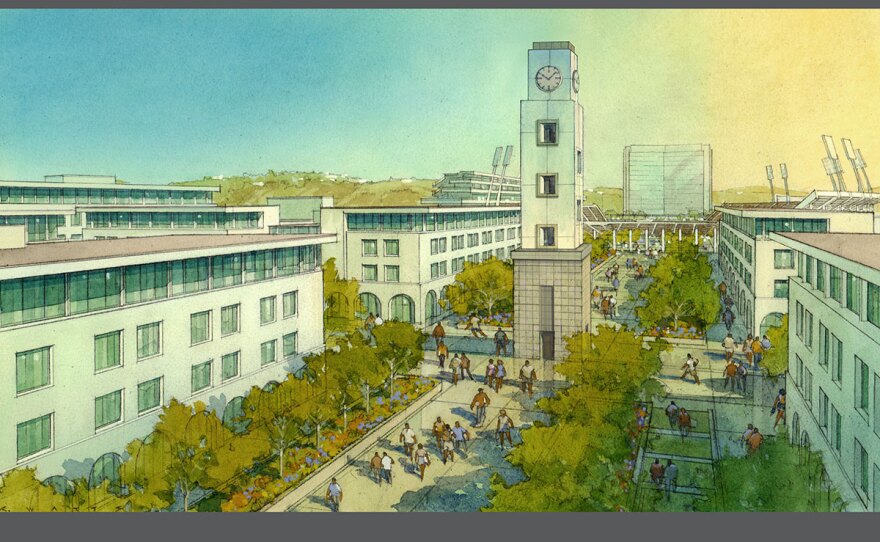Backers of an initiative that would pave the way for San Diego State University to acquire the SDCCU Stadium property for campus expansion announced Friday that they have collected 100,000 petition signatures, far more than necessary to qualify for the ballot.
"Supporters have successfully gathered many more than the required 71,646 signatures," said Kim Kilkenny, of the Friends of SDSU Steering Committee.
"Once verified, these signatures will qualify SDSU West for a 2018 ballot," Kilkenny said. "With overwhelming support for SDSU and the positive impacts the university provides to our community, San Diegans clearly support SDSU West to ensure the Mission Valley stadium site is used to benefit the public, provide a place for SDSU to grow and thrive, and guarantee a permanent, public river park and open space."
RELATED: SDSU West Backers Press Public For More Signatures
The Friends group had until the end of March to collect signatures but members previously indicated that they wanted to wrap up the signature drive by the end of the year. They plan to submit the petitions to the county Registrar of Voters next week.
If enough signatures are verified, the City Council will decide whether to adopt the initiative or place it before voters. A competing initiative, which would result in a soccer-centric commercial development, qualified earlier this year and will go on the 2018 ballot.
It is believed that if both SDSU West and SoccerCity are approved in an election, the one that receives the most votes would be adopted.
The initiative would lead to the sale of the property to SDSU, which would be required to create a comprehensive development plan.
RELATED: SDSU Unveils Campus Expansion Plan For Mission Valley
Last month, university officials outlined their vision for the project, including 1.6 million square feet of classroom and research buildings, a river park and open space, 4,500 housing units, retail shops, a pair of hotels and a multi-use, 35,000-seat stadium for college football and other sports.
SDSU Interim President Sally Roush and JMI Realty CEO John Kratzer said the project would be mostly funded by public-private partnerships, and wouldn't rely on taxpayer financing. The main exception would be the stadium, which would be funded by bonds that are paid back by future revenues.






